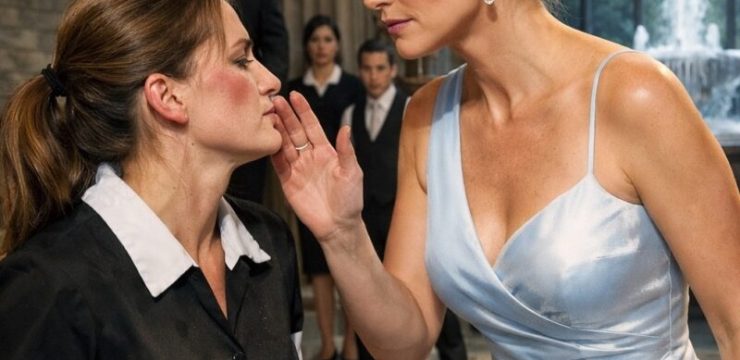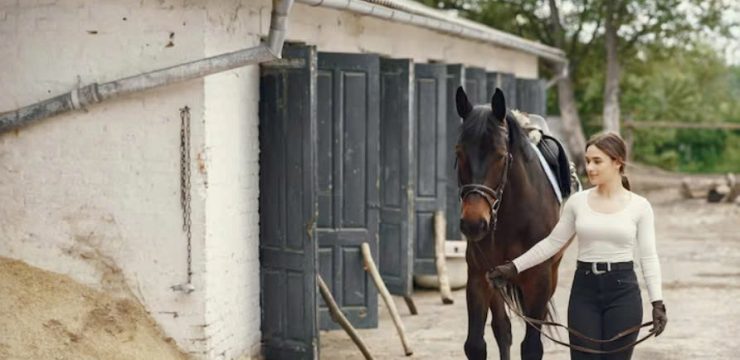By the time I realized the door had locked, it was already too late. What began as a whirlwind romance—private museum tours, champagne flights above Manhattan, and a penthouse view that made the city glow like jewelry—slowly turned into a curated display case. I was twenty-six, an art history graduate student enchanted by the grandeur of Renaissance patrons; he was thirty-two, heir to old money wrapped in effortless charm. When I married Julian Thorne, I thought I had stepped into a dream. I just didn’t realize that dream had bars.

Julian first appeared at the gallery where I worked, fifteen minutes before closing. He asked about chiaroscuro as if he truly cared. Later, I discovered he had studied me long before that moment—my schedule, my thesis, even my favorite painters. The Thorne family didn’t just accumulate wealth; they engineered outcomes. I was the naïve scholar fascinated by how noblemen once used art to secure their legacies, unaware that I was becoming part of one.
When I met his mother, Genevieve, I felt her power immediately. Her smile was polished, her gaze sharp—the look of a collector inspecting provenance. “You’ll do nicely,” she said, not as a compliment but a classification. Our wedding soon followed, lavish and perfect down to the imported orchids and the guest list full of power brokers. But while confetti fluttered through the air, my fellowship vanished, my thesis was “deferred,” and my calendar was quietly filled with Thorne Foundation obligations.
The first signs came during our honeymoon in Tuscany. Security guards became “necessary.” My phone calls were “monitored for safety.” Friends from before were “hard to fit into our new life.” Each restriction sounded reasonable on its own, but together they formed invisible chains. “You’re a Thorne now,” Julian would say smoothly. “Let me take care of you.” And I believed he was protecting me—until I wasn’t sure who he was protecting me from.
When I found out I was pregnant, my joy felt pure for a fleeting moment—then unease took over. Julian’s excitement focused not on me but on “the heir.” He began treating the pregnancy like a corporate investment: private doctors, tight schedules, controlled nutrition. Genevieve took charge of my care through a physician she called “trusted.” I was told I’d rest after the birth while specialists managed “early development.” When I protested that I wanted to raise my own child, Genevieve smiled and patted my hand. “Darling, maternal love is charming, but expertise is essential.”
One evening, at eight months along, I retreated to the library—the only space that still felt mine. Through the crack of Julian’s study door, I heard Genevieve’s voice: “The induction is set for the tenth. Dr. Marcus assures me the sedation will prevent memory of complications.” My blood ran cold. Julian’s calm reply followed: “And afterward?” “We’ll handle her care discreetly,” Genevieve said. “Her emotional instability will justify it. The child stays with us.” I froze. I had no history of instability—they were fabricating one.
That night, I watched Julian open his safe. The code: our wedding date, June 15, 2020. When he left for meetings the next morning, I opened it myself. Inside lay cash, passports, and an unregistered phone. One passport—Canadian—bore my photo under another name: Anna Fischer. He had prepared an escape for every scenario except the one where I left him first.
I sat trembling on the floor, surrounded by designer clothes that suddenly looked like costumes, and made a call I swore I’d never make. Five years earlier, I’d cut my father out of my life—Robert Moreau, a man who’d operated in worlds I never understood. He called himself a “consultant”; others whispered about intelligence ties. We hadn’t spoken since I accused him of being paranoid. But now, I dialed the number he once made me memorize “just in case.”
He answered after two rings. “This is a secure line. You have thirty seconds.”
“Dad,” I whispered. “It’s me.”
There was silence, heavy but not empty. Then his voice shifted—calm, steady, professional. “Tell me everything.” I did, spilling every horrifying detail of the plan to sedate me, claim mental illness, and take my baby. When I finished, he said one word that felt like a rope thrown to a drowning swimmer: “Good.”
“We move tonight,” he continued. “Northlight Air, Westchester. Private charter at 0700. Bring cash, nothing traceable. I’ll handle security.”
I pretended to sleep beside Julian. At dawn, I told the house staff I needed a walk. Reaching the far edge of the property, I found an unused sedan just where my father promised. I drove north, my pulse pounding. At the small airport, I handed over the Canadian passport. The clerk smiled and cleared me. Relief nearly buckled my knees. Then a uniformed officer approached.
“Routine check, ma’am,” he said politely. “Your husband purchased this airline last night. He’s waiting.”
My breath caught. Julian had outmaneuvered me. Or so he thought.
“That’s interesting,” came a calm voice behind the security desk. My father stepped into view, composed and unshakable. Two men flanked him, silent and watchful. The officer frowned. “Sir, this is private property.”
“Not anymore,” my father replied, opening a leather case. “Per FAA order issued at 6:49 a.m., Northlight’s operations are suspended pending investigation. Also, the recorded testimony of Mrs. Thorne describing a conspiracy to commit fraud and abduction has been filed. Federal agents are on-site.”
The officer’s color drained. My father’s eyes met mine, and for the first time in years, I felt protected.
The following weeks were a blur of arrests and revelations. Genevieve’s carefully crafted “medical records” collapsed under scrutiny. Emails exposed a network of deception—fabricated diagnoses, falsified authorizations, and plans to isolate me permanently. By the time the story hit the media, Julian was under investigation for financial misconduct, and Genevieve faced charges of conspiracy and coercion. Their empire, built on manipulation, began to crumble.
A year later, I live quietly on a sunlit coast in southern Europe. My son, Leo, chases the tide with laughter that sounds like freedom. My father sits nearby, showing him how to fold paper boats. The sea is calm, and for the first time, so am I. The settlement secured safety; the prosecutions ensured peace. I finished my thesis and created a fellowship for artists who challenge power with truth.
My father never said “I told you so.” Instead, he taught me to see beyond beauty—to recognize motives as clearly as brushstrokes. He taught me that love is not protection wrapped in control, but the strength to choose one’s own life.
The Thornes believed everything had a price—loyalty, silence, even motherhood. But they were wrong. Some things can’t be bought: the courage to escape, the wisdom to rebuild, and a mother’s will to protect her child.
I keep a mental checklist now: believe actions, not apologies; document everything; always know the exits; teach my child both wonder and caution. Freedom, I’ve learned, isn’t the absence of walls—it’s knowing the door opens from the inside.
As the sun dips below the horizon, painting the sky the same rose hue that first drew me to Venetian art, Leo laughs, and my father smiles. This is the life I choose—not marble halls or silken cages, but one built on truth, love, and the quiet power of reclaiming myself.





